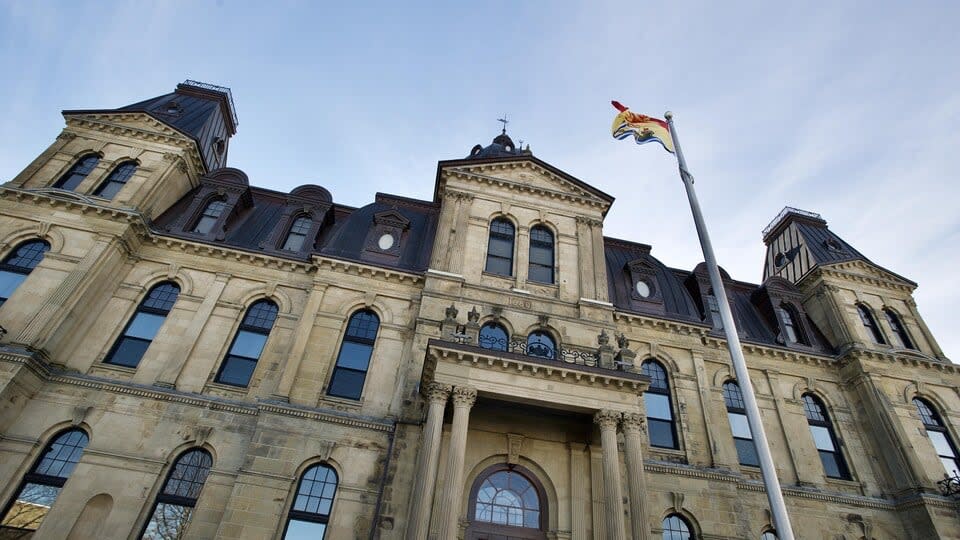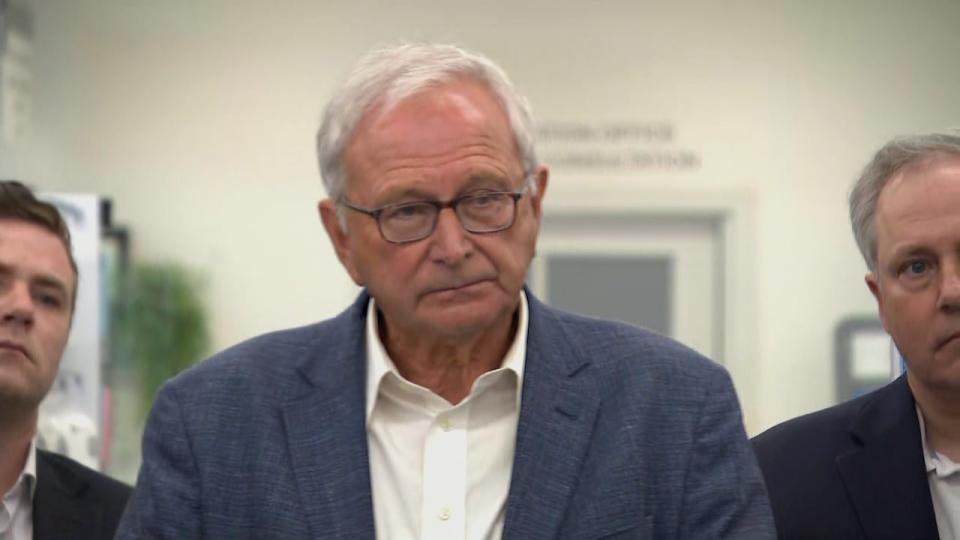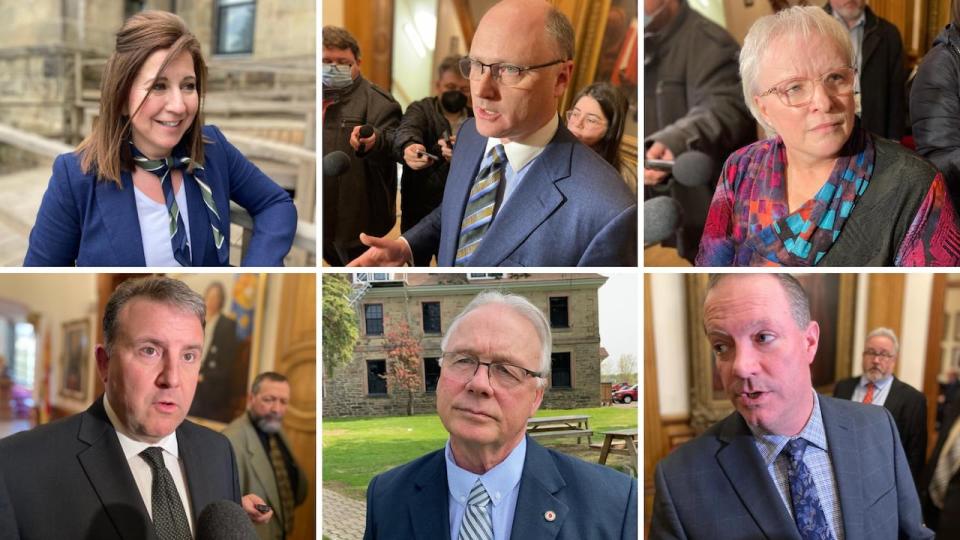The central issues in October’s provincial elections in Canada have much in common.
Some are no surprise as the country grapples with health and cost-of-living challenges post-pandemic.
St. Thomas University political scientist Jamie Gillies says the incumbents in New Brunswick, Saskatchewan and British Columbia have all paid the price for voter frustration.
However, he says that’s also prompted a resurgence in populist policy – or policies that tend to be driven by anger or fear in the electorate – not seen from Canada’s main election contenders in a long time.
“It can be very good, this is how we wound up with medicare,” he said.
“But it also has sort of a dark side … and that can enter into the political narrative as well. It’s been a long time since we’ve seen this so blatantly as part of a number of election campaigns.”
Season of change?
Dalhousie political scientist Lori Turnbull says there’s an “anybody-but” the incumbent dynamic with Higgs – a win would make him the first three-term New Brunswick premier since Frank McKenna in 1995.
However, she added, that’s not translating to a landslide lead in the polls for the Liberal challenger Susan Holt.
“We’ll see whether the Liberals are able to put up enough of a challenge to get ahead of them,” she said.
If the Green Party is able to maintain its three-seat presence in the legislature, Turnbull says there’s a real possibility of no clear winner on election night.


The makeup of New Brunswick’s next legislative assembly will be determined this week. (Guy LeBlanc/Radio-Canada)
That’s a familiar situation to onlookers of the British Columbia election – with David Eby’s NDP running neck and neck with John Rustad’s surging Progressive Conservatives on Saturday.
While the PCs haven’t taken a decisive victory in British Columbia, the result alone marks progress for a party that had eight seats to the NDP’s 55 at dissolution.
A similar story is unfolding in the Saskatchewan race, where the main challenger to Scott Moe’s Saskatchewan Party, Carla Beck’s NDP, held just 14 seats to the former’s 42.
The issues
Gillies says all incumbents are suffering the effects of less affordability in the housing market and a health-care system struggling to keep up with demand.
“Whether they are NDP or Saskatchewan Party and more conservative, or the PCs out east here … they are being punished because of things that are on voters’ minds,” he said.
“I think housing and health care and cost of living are big three … the voters feel that they’re not better off than they were four or five years ago.”
He says the Holt campaign’s strategy to zero in on health care sought to capitalize on that.


Progressive Conservative Leader Blaine Higgs, Green Party Leader David Coon and Liberal Party Leader Susan Holt have wrapped up their campaigns. (Radio-Canada and CBC)
The incumbents in all three provinces, he added, were also governments when the pandemic started.
“They’ve had a couple of years to come up with policy solutions to some of the challenges that came about as a result of the COVID-19 years, and they aren’t successful,” he said.
“None of the governments are, regardless of their political background or ideology. They can’t deal with the cost-of-living issues, they don’t have effective strategies for this, and I think voters, they grow tired of the excuses that governments have.”
Incumbents mount response
In large part, the 2024 incumbent campaigns have tried to focus on potential threats to the security of people and their families – and motivate people to vote for their proposed solutions.
Turnbull noted public safety and drug addiction as a top issue for British Columbians.
Eby ran on a public safety pitch to expand involuntary treatment for drug users – a notable about-face on the province’s previous decriminalization approach.
While on the opposite end of the political spectrum, Higgs has also proposed involuntary treatment as the way forward.
He’s cited the situation out west as a reason for voters to return his party to the legislature as a majority.


PC Leader Blaine Higgs has promised to use involuntary treatment as a solution to growing issues with addiction and homelessness. (Radio-Canada)
“B.C. has certainly been … a textbook case in what not to do in managing with, dealing with drug situations,” he said.
Higgs made national waves in his tenure with changes to Policy 713 that would require teachers to get parental permission to use the preferred names and pronouns of gender-diverse students.
Turnbull said it’s also been made into a wedge issue in Saskatchewan.
This week Moe announced that his “first order of business” if re-elected would be to direct school districts to restrict students’ use of change rooms to their sex assigned at birth.
Both stances by Higgs and Moe have proven divisive for their respective caucuses — leading some former allies to step down and others to endorse opponents — prompting questions about party values and direction into the future.


From top left to right, Andrea Anderson-Mason, Trevor Holder, Dorothy Shephard, Daniel Allain, Ross Wetmore and Jeff Carr. The six PC MLAs broke ranks with Higgs over changes to Policy 713, the gender-identity policy for schools. (Jacques Poitras/CBC)
But gender identity issues were not as obvious on the New Brunswick campaign trail as in Saskatchewan – and Gillies believes that was intentional.
“I think that with Blaine Higgs, that if the PCs come up short tomorrow, one of the major reasons is that the Policy 713 debate that he started … didn’t fit the political culture of the Maritimes,” he said.
“Maybe the fact that they really haven’t focused on it publicly, with public announcements all the time, is indicative of they really wanted to shift the focus of their campaign to economic issues.”
The final day to vote is Monday in New Brunswick and Oct. 28 in Saskatchewan.

